The image of the Ortega brothers contrasts with the experience of seeing them on screen or hearing them speak. Their physical stature and facial features are not something you would want to mess with, joke about, or confront on the street.
“I was afraid of them when I first met them! I thought they were going to beat me up. But no, quite the opposite…,” says Juan Escobedo, director and founder of the East LA Film Festival.
One couldn’t agree more.
Both Ricardo and George show their warmth during the interview and share their vision of making art in a neighborhood like East L.A., the importance of mentorship, and the message of unity and family they seek to convey.
Both directed and wrote the short film “Así es la vida,” which is being presented today, Saturday, at the East L.A. Film Festival.
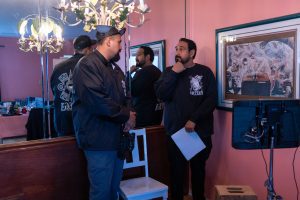

The plot is simple; their story revolves around Danny, played by Armand Munoz, who returns home upset because of the bullying he experiences at school. His mother, worried, decides to call the boy’s uncles, portrayed by Fabián Alomar, as Uncle Pepe, and George Ortega, as Uncle Lucky. Both uncles share some experiences with Danny, illustrating that everyone is exposed to bullying and has faced uncomfortable situations, but it’s natural and must be faced with positivity.
“We want to convey a message of unity and positivity to our neighborhood, the kids who join our projects, and the people who follow our projects,” says George.
It might be difficult to imagine this duo working shoulder to shoulder in their films, but for them, it has been quite natural.
“It’s very positive for both of us. George was always the brother with a lot of artistic talent, he paints and writes very well. He was always a role model for me; I liked what he did and tried to emulate it,” says Ricardo.
It wasn’t always like this.
“We used to fight as kids too. We would get into fights and wouldn’t stop until something broke. But we were always very close. I remember that the idea of making art, of making movies, was already there. As kids, in our minds, we built stages, played at being famous artists,” says George.
The childhood and adolescence of the Ortega brothers were not easy. Their father was always absent, and their mother worked all day to support the household expenses.
“We depended on each other, leaned on the rest of the family. If our mom wasn’t there, our grandma would come to be with us. But the issue of the absent father is very present in our stories,” adds George.
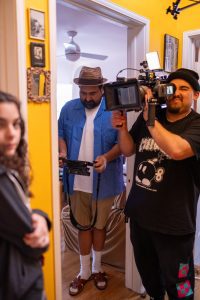

George also experienced bullying when he was younger, so he had to learn to defend himself. This, he shared with his brother Ricardo. So when they write about those experiences in their film, it’s because they have lived through it.
“But the questions were always there, ‘Dad in not around… Dad is always missing… We are always looking around…,’ that defined us as people and then marked our artistic work.”
The role of the uncles portrayed in the film takes on an even greater dimension in real life. While in “Así es la vida,” Danny listens to his uncles, they are clearly the mentors of the boy and significant figures in his life; in the day-to-day life of the Ortega Brothers, they try to do the same.
“We try to show the young people who work with us that they can dream, that things can be done. They know they are welcome with us, and we are very happy to see them when they start their own projects. In this film, about 15 teenagers participated, seeing them with the cameras, in the filming, is a joy for us,” adds George.
Both think they make a good team.
“What escapes one is seen by the other. That’s how it works in the writing process. We get together, start talking, both give our ideas, discard them, accept them, and that’s how we progress. For example, the idea for ‘Así es la vida’ came up when we didn’t have a clear story. I decided to go to a restaurant, and while I was there, I saw two men talking to a young boy. That’s when the idea came to me, I went back, and we polished it. It’s fabulous,” says Ricardo.
The Ortega Brothers Vision always seeks themes that affect the community the most and build stories around them that can be beneficial.
“The theme of uncles, of paternal absence, and family is something that is very strong in us and we consider it very important in the community. We welcome everyone, without labels, no matter if they are Chicanos, Latinos, or from other countries in South America. For us, we are all one, that’s why we open our arms to them,” says George.
Their mother is very proud of the work they are doing.
“We both were in jail. It was a tough time; we had moments when we were searching for our place. We felt bad for my mom. First, our dad was absent because he had been in jail, and then us. It was very intense, everything we do now comes from her. She is happy to be able to see our movies. That’s why we try to make movies for the family, so everyone can watch them,” adds George.
Many of the stories they tell in “Así es la vida” happened in reality. There are many scenes where life twists you, for example, when one of the uncles goes to his fiancée’s house in his youth. He cooked so badly that he could barely finish it, but it caused him tremendous diarrhea that explodes in the middle of a movie.
“These are anecdotes we have experienced in one way or another. But, hey, we want to show that it’s okay for these things to happen, they don’t have to be hidden. It’s part of the growing experience,” says Ricardo.
The film was produced by Fabian Alomar and the Ortega Brothers.
Juan Escobedo: “A good filmmaker leaves you thinking after you watch a movie.”

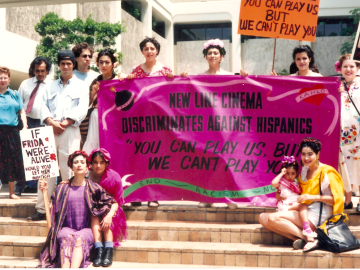
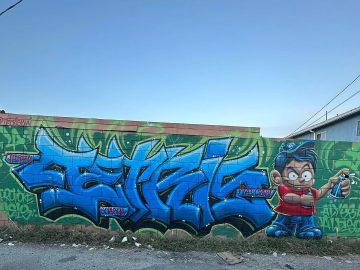

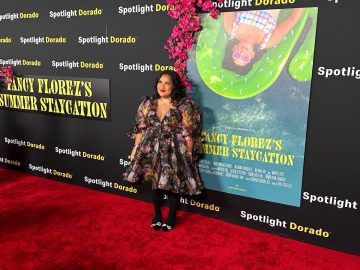
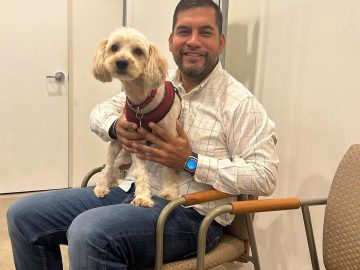
Write a Reply or Comment
You should Sign In or Sign Up account to post comment.